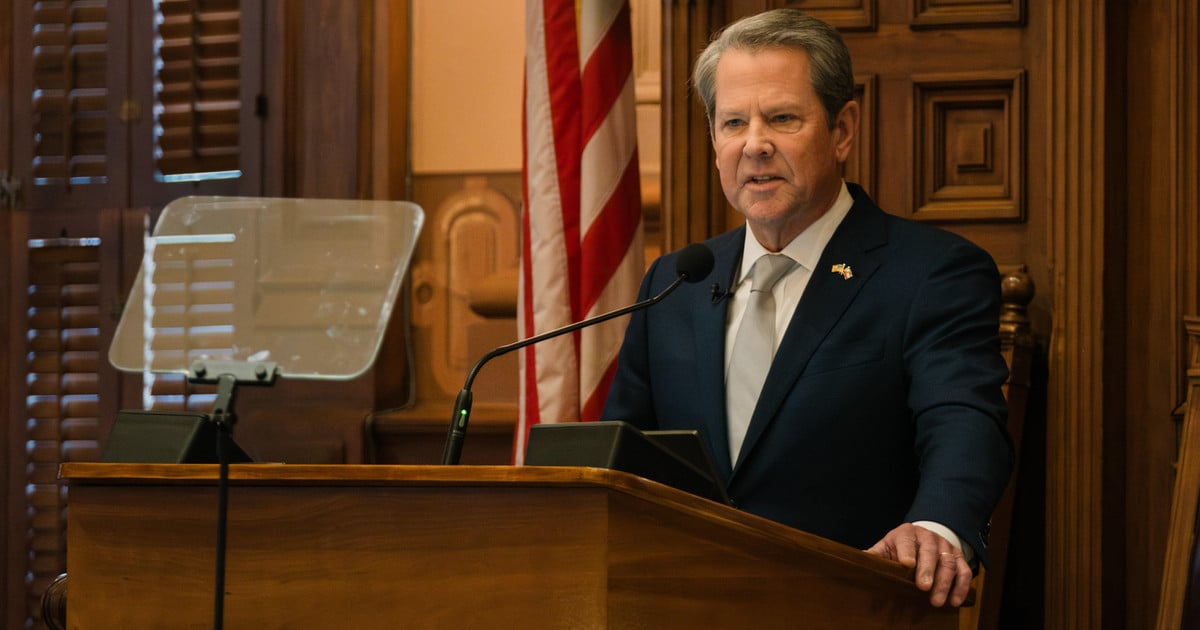
A recent report from the Government Accountability Office (GAO) has revealed a troubling trend in Georgia’s Medicaid work requirement program, known as Pathways to Coverage. The analysis indicates that the program has spent nearly twice as much on administrative costs as it has on actual health care for residents. This raises serious questions about the effectiveness of such programs and their ability to provide necessary services to vulnerable populations.
According to the GAO, the Pathways to Coverage initiative has cost federal and state taxpayers upwards of $86.9 million since its inception, yet it has only enrolled a small fraction of those eligible for free health care. Specifically, as of April, the program had allocated $54.2 million to administrative expenses, while only $26.1 million was spent on health care services. Alarmingly, nearly 90% of these administrative costs were funded by federal taxpayers, indicating that Georgians are not alone in bearing the financial burden of this program.
The report highlights the lack of oversight from the Centers for Medicare and Medicaid Services (CMS), mirroring criticisms from previous years regarding the agency’s failure to adequately monitor administrative expenditures associated with state-level Medicaid reforms. The GAO found that Georgia was not required to provide detailed accounts of the costs associated with implementing the program, which allowed for significant overspending without accountability.
Georgia’s Republican Governor, Brian Kemp, has touted the Pathways program as a model for conservatives across the nation, promoting it as a way to reform federal safety net programs and reduce what some view as unnecessary government assistance. This initiative has even been referenced by congressional Republicans as a blueprint for a federal Medicaid work requirement law passed in July, which is set to take effect in 2027.
Initially, the program aimed to expand access to free health care for low-income adults under 65 earning below the federal poverty line of $15,650 annually. To qualify, individuals must prove they are working, studying, or volunteering for at least 80 hours per month. However, enrollment has remained dismally low, with just 9,175 out of nearly 250,000 eligible Georgians participating as of late August. The reasons for this low enrollment have been attributed to technical glitches in the enrollment platform, a lack of staffing in the state agency responsible for enrollment assistance, and a complicated bureaucratic process that deters potential enrollees.
Despite these challenges, Georgia officials have insisted that the Pathways program was never intended to maximize enrollment. Carter Chapman, a spokesperson for Governor Kemp, reaffirmed the administration’s commitment to the program and its ongoing efforts to make improvements to better serve Georgians’ health care needs.
In December, Democratic senators from Georgia, including Jon Ossoff and Raphael Warnock, called on the GAO to investigate the administrative costs associated with Pathways, particularly those related to verifying that recipients are meeting the program’s work requirements. The report’s findings confirmed their concerns, showing that administrative spending has outpaced funding for actual medical assistance. This imbalance is attributed to the initial costs required to set up the program, delays in enrollment, and potential duplicative expenses resulting from these delays.
State officials have argued that administrative costs increased by 20% to 30% due to a legal battle with the Biden administration, which sought to dismantle Medicaid work requirement programs established before President Biden took office. However, the GAO report did not support this assertion with evidence.
Chapman criticized the senators who requested the report, suggesting that they lack constructive ideas for addressing health care needs in Georgia. He stated, “Now, as other states prepare to adopt our model and reject one-size-fits-none big government healthcare, Democrats like Senators Ossoff and Warnock are trying to rewrite history after four years of inaction and blame the State for costs associated with their own stonewalling.”
In response, Senator Warnock stated that the GAO’s findings underscore his opposition to the push for nationalizing work requirements, particularly in light of the substantial tax dollars being consumed by administrative rather than health care costs. He emphasized, “Now the entire country can see what we in Georgia already know: Georgia’s Medicaid work reporting requirement program is the real waste, fraud, and abuse.”
The GAO report did not account for additional expenditures, such as the $27 million that Deloitte Consulting earned to promote Pathways or the roughly $10 million spent on other consulting services and legal fees related to the state’s protracted court battle with the federal government. Deloitte has not commented on the matter, deferring inquiries to the state’s Department of Community Health, which has also remained silent on the issue.
As the state seeks to extend the Pathways program for another five years, the implications of these findings will likely fuel ongoing debates about the effectiveness and morality of work requirements in Medicaid programs. The overarching concern remains: are these programs truly serving the health care needs of the population, or are they primarily enriching administrative contractors at the expense of those who need care the most?


